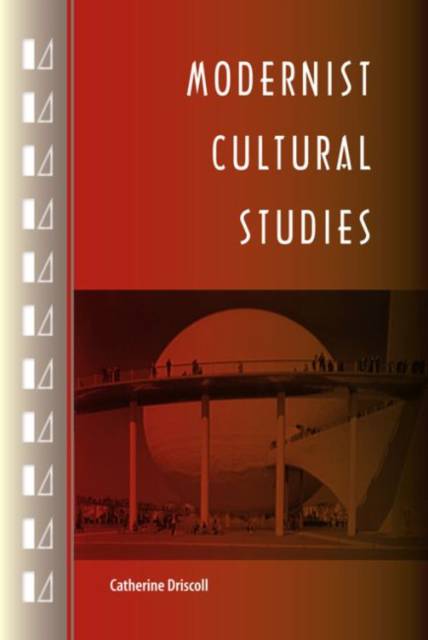
- Retrait gratuit dans votre magasin Club
- 7.000.000 titres dans notre catalogue
- Payer en toute sécurité
- Toujours un magasin près de chez vous
- Retrait gratuit dans votre magasin Club
- 7.000.0000 titres dans notre catalogue
- Payer en toute sécurité
- Toujours un magasin près de chez vous
Description
"A timely reassessment of the fraught relationship cultural studies has had with the term 'modernism' amounting to a reevaluation of the place that both can occupy in discussions of cultural modernity, resting on a commonality or refrain of innovation, relativity, contingency, critique, and a pluralistic disciplinary methodology."--Peter Childs, University of Gloucestershire
For many scholars, cultural studies is viewed as a product of postmodern criticism and as the antithesis of modernism. In this brilliant work, Catherine Driscoll argues persuasively that we must view what we call cultural studies as a direct continuation of the innovations and concerns of modernism and the modernists.
In making her case, Driscoll provides a fresh take on arguments--some seemingly unresolvable--that pivot on modernism's desire for novelty. Defining modernity as a critical attitude rather than a time period, she describes the many things these ostensibly different fields of inquiry have in common and reveals why cultural studies must be viewed as a fundamentally modernist project. Casting a wide net across the shared interests of modernism and cultural studies, including cinema, fiction, fashion, art, and popular music, Driscoll explores such themes as love and work, adolescence and everyday life, the significance of the everyday, the popular as a field of power, and the importance of representation to identity and experience in modernity.Catherine Driscoll is chair of gender and cultural studies at the University of Sydney.
Spécifications
Parties prenantes
- Auteur(s) :
- Editeur:
Contenu
- Nombre de pages :
- 292
- Langue:
- Anglais
Caractéristiques
- EAN:
- 9780813041704
- Date de parution :
- 16-03-12
- Format:
- Livre broché
- Format numérique:
- Trade paperback (VS)
- Dimensions :
- 152 mm x 229 mm
- Poids :
- 435 g

Les avis
Nous publions uniquement les avis qui respectent les conditions requises. Consultez nos conditions pour les avis.






